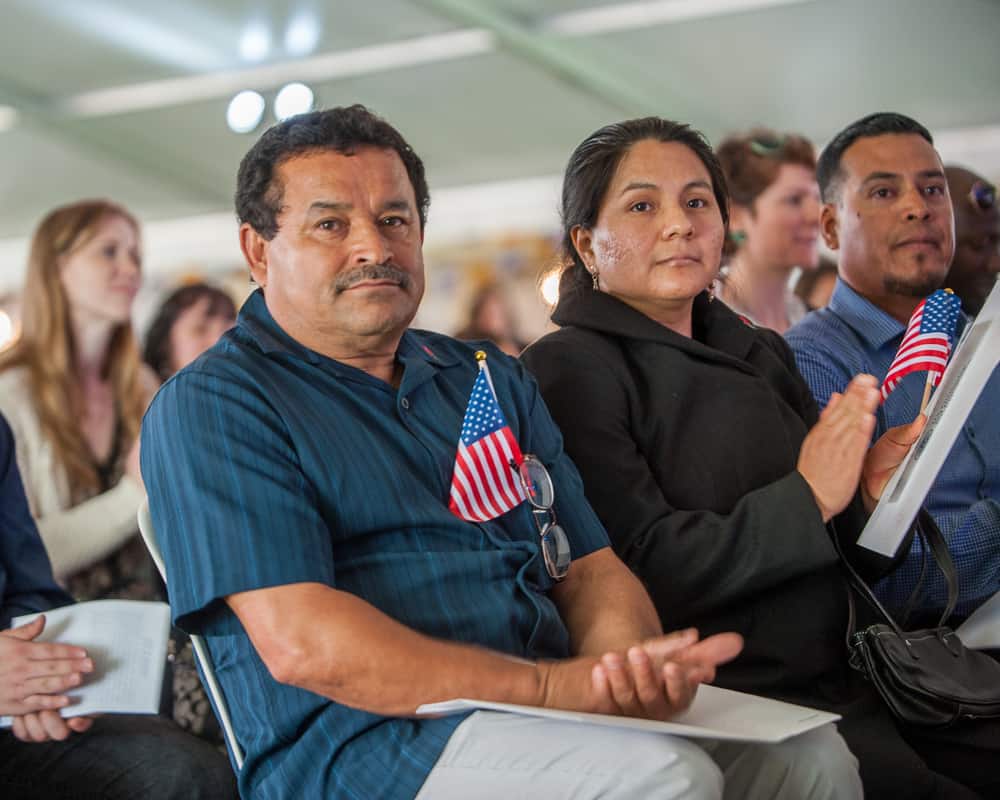The United States has a long and successful history of family-based immigration, recently referred to in the news and political debate as “chain migration.” Of course, bringing over family members was customary from the time the very first immigrants arrived from England, but the approach was codified more than 50 years ago, creating a clear, consistent, legal structure for bringing family members to the U.S.
Now, however, support is growing for a “merit” based immigration system that would significantly limit the ability of citizens and lawful permanent residents to reunite their families in the United States.
How Does Family-Based Immigration Work?
A U.S. citizen or a lawful permanent resident (LPR) may petition for a visa for certain family members. The citizen or LPR making the petition “sponsors” the visa applicant and agrees to be responsible for his or her financial support. However, not every family member is eligible. First, the family member must be among the types of relatives specifically listed—not every relative is eligible for a family-based visa. Second, qualified family members must also be deemed eligible under the same standards as any other potential immigrant to the U.S. would be subject to, such as background checks and security screening.
The sponsoring citizen or lawful permanent resident must also prove that he or she has sufficient income or other resources to provide for the support of the relative.
Who Qualifies for Family-Based Immigration
Highest priority is given to a U.S. citizen’s spouse, parent, or unmarried child under the age of 21. For these three categories, there is no waiting list to enter the United States.
A number of other relatives and soon-to-be relatives of U.S. citizens and lawful permanent residents are also eligible for some type of family-based visa, but these other categories have lower priority, and must often wait for a visa number to become available before joining their family members in the United States.
These include:
- Siblings of U.S. citizens
- Adult children of U.S. citizens, married or unmarried
- Spouses of permanent legal residents
- Unmarried children of permanent legal residents
For these latter categories, the wait time to enter the country may be significant—in some cases, it may take years for a visa number to become available. It is important to monitor eligibility during that time. For example, if the unmarried child of a lawful permanent resident marries before a visa number becomes available, the petition will automatically be revoked, as the married adult child no longer fits into an eligible category.
Under a separate program, a U.S. citizen may apply for a “fiancé visa,” which will allow the citizen’s fiancé and any minor children of the fiancé to enter the United States for the purpose of marrying the citizen. However, it is important to note that a person entering the country on a fiancé visa does not receive a green card. Rather, the fiancé visa is a short-term authorization to travel to the U.S. in anticipation of marriage. If the couple does not marry within 90 days, the fiancé visa automatically expires.
Family-Based Immigration and Citizenship
Family members who are granted visas based on the status of a sponsoring relative are green-card eligible and eligible to work in the United States. Assuming that they are otherwise eligible, lawful permanent residents may apply for citizenship after five years. For spouses of U.S. citizens, the waiting period is reduced to three years.
It is unclear what type of changes may lie ahead, or exactly what the impact on family-based immigration may be. Today, however, family-based immigration provides an opportunity to reunite families in the United States and work toward citizenship.
If you are a U.S. citizen or lawful permanent resident considering bringing family members to the United States, it is in your best interest to talk with an experienced immigration lawyer as soon as possible, to ensure that you are in a position to take advantage of current laws and procedures.
Give us a call today! In Lake County, call 440.946.7656. In Cuyahoga County, call 216.861.4211







